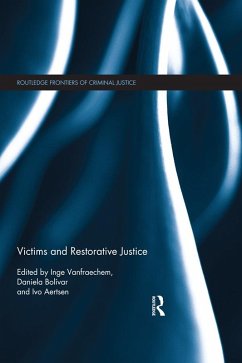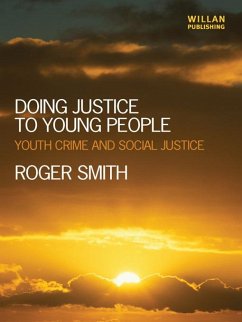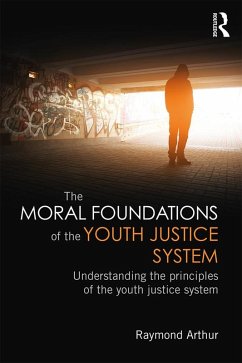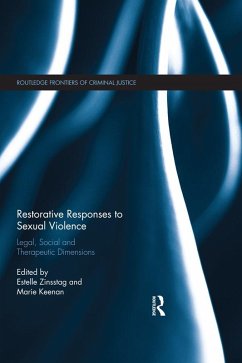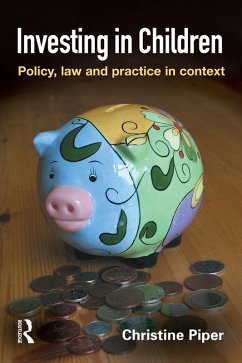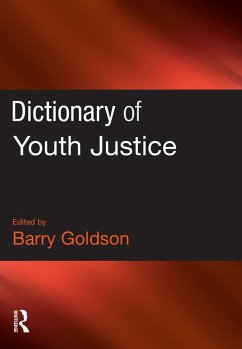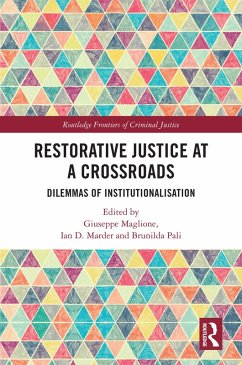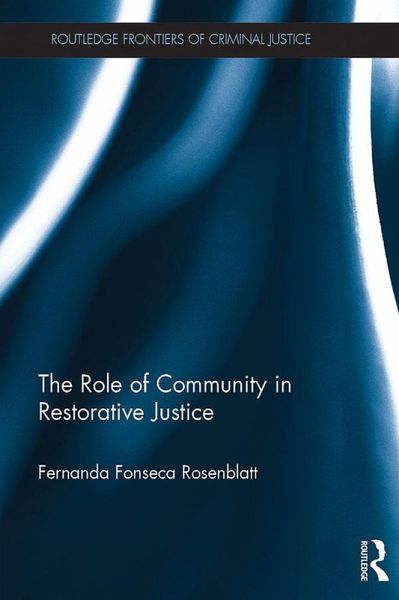
The Role of Community in Restorative Justice (eBook, PDF)
Versandkostenfrei!
Sofort per Download lieferbar
47,95 €
inkl. MwSt.
Weitere Ausgaben:

PAYBACK Punkte
24 °P sammeln!
Although restorative justice is probably one of the most talked about topics in contemporary criminology, little has been written about how community involvement in restorative justice translates into practice. While advocates have presented the community as an essential pillar of restorative justice, the rationale for why and how this is the case remains underdeveloped and largely unchallenged. This book offers an empirical and theoretical explanation of what 'community involvement' means and what work it does in restorative justice.Drawing on an empirical case study and the wider sociologica...
Although restorative justice is probably one of the most talked about topics in contemporary criminology, little has been written about how community involvement in restorative justice translates into practice. While advocates have presented the community as an essential pillar of restorative justice, the rationale for why and how this is the case remains underdeveloped and largely unchallenged. This book offers an empirical and theoretical explanation of what 'community involvement' means and what work it does in restorative justice.
Drawing on an empirical case study and the wider sociological literature, The Role of Community in Restorative Justice examines the involvement of the community in one selected practice of restorative justice and also considers the implications of the English and Welsh experience for development of a more coherent framework for operationalizing community involvement in restorative justice practices. It is argued that restorative justice programmes need to start from a more concrete and up-to-date notion of community. While operationalizing community involvement, they need to acknowledge, all at once: the importance of place; the importance of family links, friendship and other social ties; and the importance of similar social traits and identities.
This book is essential reading for students, researchers and academics in the fields of criminology, criminal justice, sociology, community studies, policy studies, social policy and socio-legal studies. This book will also be valuable reading for a variety of practitioners and policymakers, particularly working with restorative justice and youth justice.
Drawing on an empirical case study and the wider sociological literature, The Role of Community in Restorative Justice examines the involvement of the community in one selected practice of restorative justice and also considers the implications of the English and Welsh experience for development of a more coherent framework for operationalizing community involvement in restorative justice practices. It is argued that restorative justice programmes need to start from a more concrete and up-to-date notion of community. While operationalizing community involvement, they need to acknowledge, all at once: the importance of place; the importance of family links, friendship and other social ties; and the importance of similar social traits and identities.
This book is essential reading for students, researchers and academics in the fields of criminology, criminal justice, sociology, community studies, policy studies, social policy and socio-legal studies. This book will also be valuable reading for a variety of practitioners and policymakers, particularly working with restorative justice and youth justice.
Dieser Download kann aus rechtlichen Gründen nur mit Rechnungsadresse in A, B, BG, CY, CZ, D, DK, EW, E, FIN, F, GR, HR, H, IRL, I, LT, L, LR, M, NL, PL, P, R, S, SLO, SK ausgeliefert werden.




